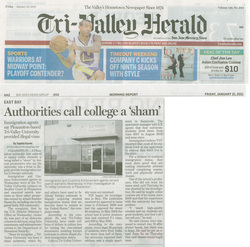It is supposed to be more secure than the paper advance paroles you may be accustomed to seeing. Hopefully it should save the agency some money and streamline the process of interim benefits: as anyone who has filed for adjustment of status knows, usually advance parole and the work permit arrive at about the same time.
But all of this - while welcome for the majority of cases - is still somewhat problematic. Many aliens believe that when they obtain advance parole, they are being given the permission to leave the United States. Advance parole is popularly called a "travel document" or "travel paper." For some aliens, travel outside the United States is big no-no, because they will not be allowed in. Leaving the United States often triggers a 3 year or 10 year bar to re-entry, due to unlawful presence while in the US. Yet any alien who has applied for adjustment of status (Form I-485) are allowed to apply for advance parole. Indeed, the filing fee for Form I-485 includes the fee for the EAD and advance parole; moreover, most aliens will usually obtain approvals. Thus USCIS creates the impression that these aliens may travel without negative consequence. This is a real problem for many people, who don't come to appreciate the real meaning of "advance parole" until they are arrested at the border and put into removal proceedings, losing the right to bond because they are considered "arriving aliens" and therefore not even admitted into the United States.
In 2010, a memo that proposed to reinterpret many provisions of the current immigration law proposed a change in how the 3 and 10 year bars would be triggered was leaked to the press. In this confidential policy proposal, it was argued that the normal waivers that would be required to bypass these bars was narrowly construed, and in doing so was at odds with longstanding USCIS policies promoting family unity. The leaked memo addressed a myriad of other issues that would have served to lessen the Draconian impact of some of our immigration laws. With regard to departing the US with advance parole triggering the 3/10 year bars, DHS certainly has the discretion to apply the waivers in a less rigid manner. Now that advance parole will be stamped on a person's work permit, it will be nearly impossible to erase the perception that advance parole means permission to travel.




 RSS Feed
RSS Feed
